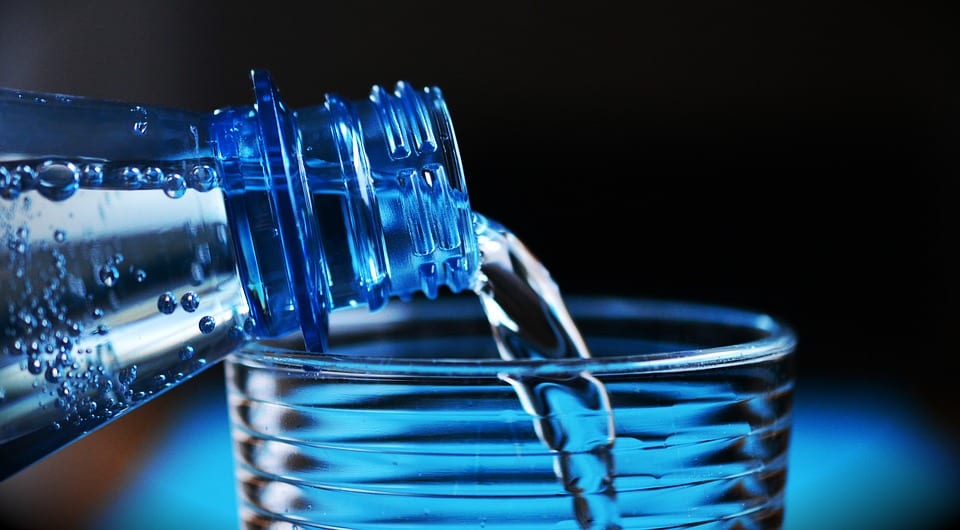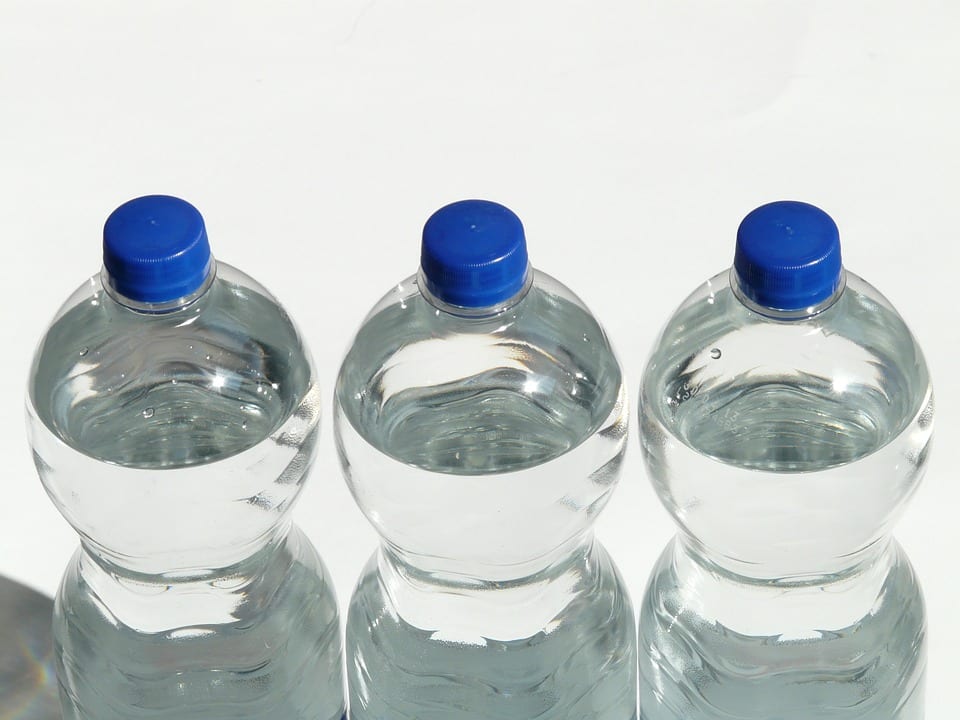Research conducted by Sherri Mason, a scientist at Penn State University, revealed that bottled water contains an average of 325 plastic particles per liter, while tap water only contains about 5.5 plastic particles per liter. Microplastics are ingested by marine organisms and accumulate within the food chain, affecting a range of species from filter feeders […]
An annual supply of bottled…
An annual supply of bottled water for a person who consumes 8 glasses a day would cost approximately $200; the same amount of tap water would cost approximately $0.33.
The post An annual supply of bottled… appeared first on Crazy Facts.
You Might Want to Check Your Bottled Water’s Expiration Date Before You Start Drinking
Keeping hydrated is important, but not every bottle of water is safe for drinking. It may sound weird, but just like meat, dairy and many other items you pick up at the grocery store, bottled water has an expiration date.
Let that sink in a moment.
Luckily, unlike those berries that tend to go bad quick, you have a long time to drink your bottled water. In fact, the expiration date on the bottle has nothing to do with the water itself.
The expiration date on water bottles is for the bottle, not the water.
— Fact (@Fact) January 29, 2020
Bet you never thought of that one, right?
There’s a good reason for the expiration label: it turns out that the plastics used for both retail bottles and water cooler jugs can become toxic over time.
The plastic bottle is what expires. It starts to leech dangerous chemicals into the water after the expiration date.
— Sister
Night (@MissxChi) February 2, 2020
According to Amy Leigh Mercee, a holistic health expert and author, “[These plastics] will leach into the liquid the bottle once expired or especially when exposed to heat, including sunlight, and hot cars or storage trucks.”
Hint: That probably means it’s time to get rid of the graveyard of half-filled water bottles in your backseat.
Mercee added, “The toxicity contained in the plastic material enters the water. It is disruptive to the endocrine system, causing reproductive symptoms, various cancers, [and] neurological problems, and damaging the immune system.”
It really is strange that bottled water has an expiration date.
— Tommy Poe (@WalkOffWalk1) January 28, 2020
She continued, saying that bottled water companies typically use a two-year expiration date, which is the industry standard. However, it is important to keep in mind that the longer a bottle has been in circulation, the more likely the chance it has been exposed to heat.
“Even a brand new plastic bottle that sat in a hot delivery truck for hours or more can already have adverse and toxic compounds present in the water even when first delivered to the grocery store,” Mercee cautioned.
I'm going to start calling it "plastic water," instead of "bottled water."
— Emily Holden (@emilyhholden) January 27, 2020
At the end of the day, it’s best to store bottled water in a cool, dark place far from household chemicals or other potential contaminants. Not only will your water last longer and taste better but it will also be safer.
…and that’s the whole point of bottled water.
The post You Might Want to Check Your Bottled Water’s Expiration Date Before You Start Drinking appeared first on UberFacts.
New Study Finds Your Bottled Water May Be Dirtier Than You Think
A lot of people believe that paying money for bottled water is a better idea than drinking tap water. Some believe it’s actually healthier for them, while others might insist that it’s cleaner. While there can be some truth to this (if you live in Flint, MI, for instance), a recent study may have consumers thinking twice about how much they spend on bottled water in the future.
The study tested 259 bottles across 11 brands and 9 countries (including the United States) and found that 93% of the tested bottles contained microplastics – around 10.4 plastic particles per liter of water.
Photo Credit: Pixabay
In case you’re wondering, that’s twice the amount of contamination found in most tap water, according to an Orb Media investigation.
Microplastics are tiny fragments of plastic, including the plastic used to make some of the bottle caps. Researcher Sherri Mason told AFP “I think that most of the plastic that we are seeing is coming from the bottle itself, it is coming from the cap, it is coming from the industrial process of bottling the water.”
Even though research shows that microplastics can be harmful to marine life, it’s unclear whether or not they have similar effects on humans – they’re found in other edible products, like fish and shellfish, and in tap water, and a recent study found that they’re absolutely making their way into humans, too.
Photo Credit: Pixabay
Mason continued:
“There are connections to increases in certain kids of cancer to lower sperm count to increases in conditions like ADHD and autism. We know that they are connected to these synthetic chemicals in the environment and we know that plastics are providing kind of a means to get those chemicals into our bodies.”
Joe Doss, the President of the International Bottled Water Association, cautions that the study hasn’t been peer reviewed and should be taken with a grain of salt until it is.
“Consumers can remain confident that bottled water products, like all food and beverages, are strictly regulated by the U.S. Food and Drug Administration and, thus, are safe for consumption,” Doss said in a statement. “The bottled water industry is committed to providing consumers with the safest and highest quality products.”
Photo Credit: Pixabay
The World Health Organization confirmed to BBC that they will be conducting a review into the potential risks posed by microplastics found in bottled water.
Until then…I don’t know. Buy a filtered pitcher or bottle? Switch to Gatorade? Drink from the tap? Your choice!
The post New Study Finds Your Bottled Water May Be Dirtier Than You Think appeared first on UberFacts.
New Study Finds Your Bottled Water May Be Dirtier Than You Think
A lot of people believe that paying money for bottled water is a better idea than drinking tap water. Some believe it’s actually healthier for them, while others might insist that it’s cleaner. While there can be some truth to this (if you live in Flint, MI, for instance), a recent study may have consumers thinking twice about how much they spend on bottled water in the future.
The study tested 259 bottles across 11 brands and 9 countries (including the United States) and found that 93% of the tested bottles contained microplastics – around 10.4 plastic particles per liter of water.
Photo Credit: Pixabay
In case you’re wondering, that’s twice the amount of contamination found in most tap water, according to an Orb Media investigation.
Microplastics are tiny fragments of plastic, including the plastic used to make some of the bottle caps. Researcher Sherri Mason told AFP “I think that most of the plastic that we are seeing is coming from the bottle itself, it is coming from the cap, it is coming from the industrial process of bottling the water.”
Even though research shows that microplastics can be harmful to marine life, it’s unclear whether or not they have similar effects on humans – they’re found in other edible products, like fish and shellfish, and in tap water, and a recent study found that they’re absolutely making their way into humans, too.
Photo Credit: Pixabay
Mason continued:
“There are connections to increases in certain kids of cancer to lower sperm count to increases in conditions like ADHD and autism. We know that they are connected to these synthetic chemicals in the environment and we know that plastics are providing kind of a means to get those chemicals into our bodies.”
Joe Doss, the President of the International Bottled Water Association, cautions that the study hasn’t been peer reviewed and should be taken with a grain of salt until it is.
“Consumers can remain confident that bottled water products, like all food and beverages, are strictly regulated by the U.S. Food and Drug Administration and, thus, are safe for consumption,” Doss said in a statement. “The bottled water industry is committed to providing consumers with the safest and highest quality products.”
Photo Credit: Pixabay
The World Health Organization confirmed to BBC that they will be conducting a review into the potential risks posed by microplastics found in bottled water.
Until then…I don’t know. Buy a filtered pitcher or bottle? Switch to Gatorade? Drink from the tap? Your choice!
The post New Study Finds Your Bottled Water May Be Dirtier Than You Think appeared first on UberFacts.
The expiration date on bottled water…
 The expiration date on bottled water is for the bottle, not the water.
The expiration date on bottled water is for the bottle, not the water.
Nestle’s enormous California (water) bottling plant is on an Indian reservation…
 Nestle’s enormous California (water) bottling plant is on an Indian reservation so they don’t have to adhere to government water restrictions during droughts or report on how much water they’re actually using.
Nestle’s enormous California (water) bottling plant is on an Indian reservation so they don’t have to adhere to government water restrictions during droughts or report on how much water they’re actually using.




